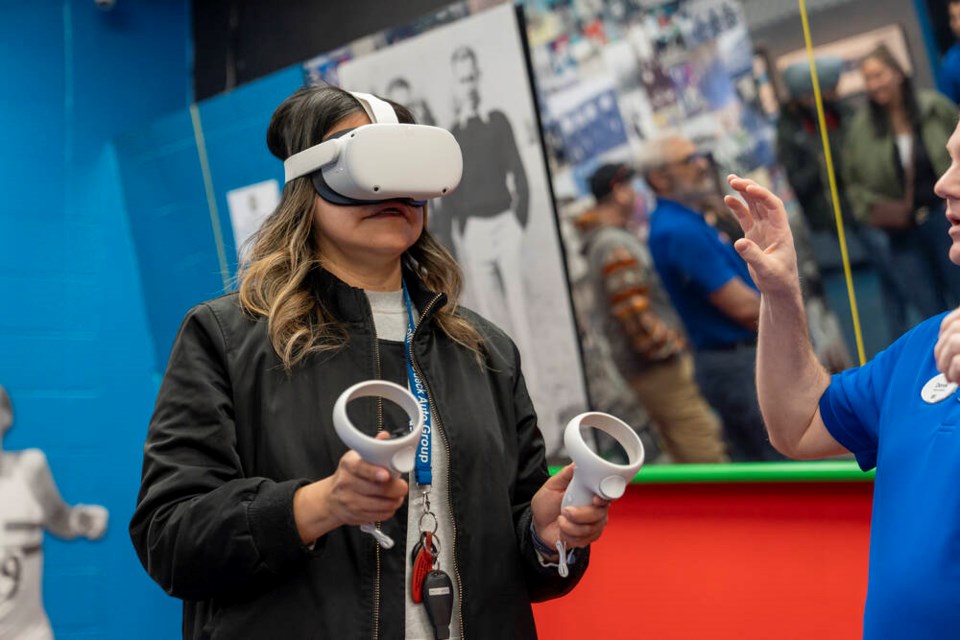As we race deeper into the digital age, many museums and galleries are embarking on digitization projects that ensure their offerings can be viewed anytime, anywhere.
Now the BC Sports Hall of Fame has joined the game, making the largest known permanent gallery in the world dedicated to Indigenous sport accessible at the click of a button or the swipe of a thumb.
The Indigenous Sport Gallery at the BC Sports Hall of Fame can now be experienced through virtual reality by anyone in the world from the comfort of their own homes.
“We wanted to find a way to have more British Columbians learn about Indigenous sport history,” said the project’s lead, Shelby McCannel. “It was important to bridge that gap and bring learning to people who might not be engaging with us on a normal, day-to-day basis.”
The digitized edition of the all-encompassing exhibit includes a 360-degree virtual tour of the gallery, with additional made-for-screen features not found in the bricks and mortar building. Those include video profiles of 14 featured athletes and honoured members, alongside 3D interactive artifacts.
Visually pleasing and easy to navigate, the site also includes an interactive timeline and map, and vibrant illustrations from səlilwətaɬ (Tsleil-Waututh Nation) artist Olivia George.
The online edition has been created to cater to all manner of virtual guests, no matter what age or level of tech savvy, said McCannel.
“When we were creating the site we took into account how everyone has different levels of comfort with technology, as well as different ways of accessing it,” she said. “For the virtual tour portion, we have a desktop version that allows visitors to navigate and learn from the comfort of their homes, but then you can access that same virtual guide with the VR headset, and have that more immersive feel.”
For those who have yet to equip their homes with a futuristic VR device, the desktop component is equally as immersive and engaging, McCannel added.
The physical Indigenous gallery, the largest known permanent gallery dedicated to Indigenous sport in the world, was launched in 2018 as an expansion of the BC Sports Hall of Fame’s former Aboriginal Sports Gallery. The gallery spans a 1,500-square-foot space and features more than 40 past and active Indigenous athletes, including the likes of Terry Fox, Carey Price, Jack Poole, and the 1936 North Shore Indians lacrosse team.
In its relatively short tenure it has already racked up a fistful of awards, including winner of the 2019 Canadian Museums Association Award of Outstanding Achievement, in the Exhibitions category, and the 2019 Best New Exhibit in the World award, granted by the International Sports Heritage Association.
While the virtual addition is an incredible feat for the gallery, there is still no better experience than visiting the exhibition in person and seeing the artifacts up close and personal, said McCannel.
Being able to share such important stories, regardless of the medium with which they are shared, is an honour for those at the gallery, she added.
“It’s such a big thing for us that we’re able to share these stories, because Indigenous athletes and their families in the Indigenous sport community have shared them with us,” she said. “We’re just happy to be able to offer a place to showcase them.”
The .
Mina Kerr-Lazenby is the North Shore News’ Indigenous and civic affairs reporter. This reporting beat is made possible by the .

